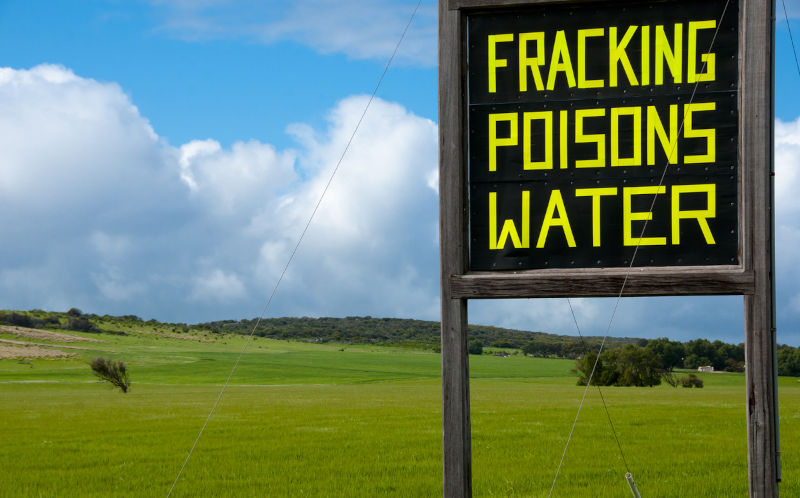Human and Environmental Health cry out for a revised Water Trigger
October 19, 2023
Environmental and some health organisations are requesting urgent legislative action to amend part of the EPBC Act of 1999, to include shale and tight gas so it can be applied to assessments of the Beetaloo shale gas development.
In 2012, the Australian Government established the Independent Expert Scientific Committee on Coal Seam Gas and Large Coal Mining Development (IESC) to assess water security but the IESCs remit did not include shale and tight gas. Consequently our leading water scientists are excluded.
It was a surprise to many and shock and horror to those who understood the scientific and health implications when it became clear that the government had adopted Morrisons gas fired recovery. It seems intent on delivering it with even more efficiency and connivance than the previous government.
The urgency for amended legislation relates to the NT governments approval of fracking shale gas in the Beetaloo Basin, for transfer to Middle Arm, Darwin, to create a group of factories and industrial facilities, providing gas for a new Liquid Natural Gas processing and export facility, with development of blue and green hydrogen, petrochemicals, mineral processing, and carbon capture and storage.
The entire hub of pollution has a green washed name of Middle Arm Sustainable Development Precinct.
The approval was based on the findings of the NT’s The Strategic Regional Environmental and Baseline Assessment (SREBA), recommended by the Pepper enquiry which found no new risks associated with the development of an onshore shale gas industry.
In our view and that of many others, unconventional gas development in the Beetaloo Basin would damage climate stability, biodiversity, water security and human health. This damage is supported by new information in the recent report Health evidence against gas and oil is piling up, environment experts report.
The case against the Beetaloo project proceeding also relates to climate change with ninetysix leading Australian scientists and experts calling for the Northern Territory Government to follow the science and ban unconventional gas development because of its unacceptable impact. The signatories to the letter claim a gas industry in the Beetaloo Basin could add 89 million tonnes of emissions to the atmosphere annually which, according to the letter, was “equivalent to four times the current emissions of the Northern Territory”.
The governments desperation to develop Beetaloo is revealed by the Environment Protection (Sea Dumping) Amendment (Using New Technologies to Fight Climate Change) Bill 2023 which allows carbon capture of the emissions in geological strata under the sea.
At best, this technique will store only some of the emissions. The Explanatory Memorandum to the draft Dumping Bill states, Therefore, the Bill promotes the right to health under Article 12 of the United Nations Committee on Economic, Social and Cultural Rights (ICESCR). One wonders if PwC wrote this.
There is another aspect to this promotion of Beetaloo. It is the failure to implement assessment by revising the EPBC Act with urgency.
The government, on taking office in 2022, had available dire warnings about the inadequacy of the 24 year-old EPBC Act as detailed by Professor Graeme Samuel. His Report listed a litany of defects in environmental protection but mentioned human health only in passing this being outside his terms of reference.
The new government also had available the 274-page State of the Environment Report. This painted a vivid picture of nature crumbling under the combined pressure of climate change, prodigious land clearing, habitat loss, invasive species, mining and pollution. Using the Mountain Ash forests of Victoria as an example, Lindenmayer and colleagues explain that Australia has at least 100 ecological communities which are currently threatened. These communities have continued to deteriorate by week and by month since the May 2022 election and for the duration of previous governments. Yet, there is no hope of a new EPBC Act till 2024, if then.
Ecosystem services are the life support benefits to humanity provided by the natural environment, which are pollination of crops, clean air, water retention and filtration, decomposition of wastes and re-circulation of nutrients. They provide resilience and productivity of land and oceanic food ecosystems.
Perhaps the government fails to understand this or surely a new EPBC Act would have been functioning by now. Or, will it appear only once the Beetaloo and Middle Arm are approved?
After great expectations for Albanese government action on climate change, there is considerable disappointment and alarm at their performance which can be seen as part of the backsliding in many other countries, for example in the UK and in Europe with the promoting of right wing credentials to gain power. In the case of Australia, the government does not want to restrict income-producing developments when high cost of living will be an election issue.
The government is likely to fail emission reduction targets but proudly extols its renewable energy prowess. To be effective in reducing national and world emissions quickly it must cease the use of fossil fuels.
In relation to the water trigger and Beetaloo, there is an important ethical issue. We now know that many Australians will suffer illness and death from air pollution at Beetaloo and Middle Arm developments. Our situation will be similar to a recent US study which estimated that air pollutants from oil and gas operations in one region caused 410,000 asthma attacks, including 2,200 new cases, 530 emergency department visits, 1,500 additional respiratory hospitalisations, 270 additional heart attacks and 7,500 premature deaths. The calculated financial cost of these losses was US$77 billion in 2016 alone. This is supported by recent articles such as Texas Quietly Moves to Formalise Acceptable Cancer Riskfrom Industrial Air Pollution. Public Health Officials Say its not Strict Enough.
Essentially Australia is travelling on this road by ignoring both the urgent need for the water trigger and a vital health assessment system. Are there words to explain these behaviours? Betrayal is not enough.

